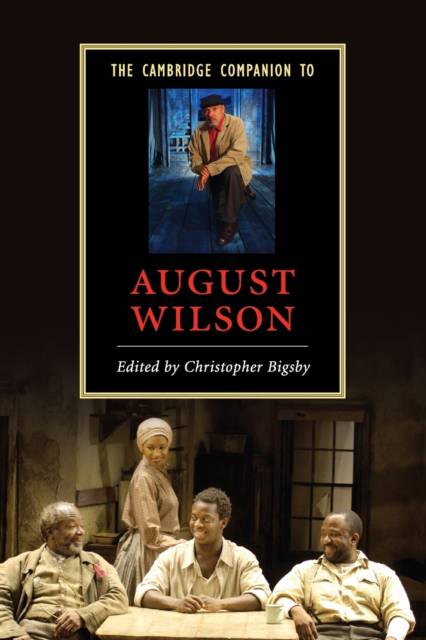
- Afhalen na 1 uur in een winkel met voorraad
- Gratis thuislevering in België vanaf € 30
- Ruim aanbod met 7 miljoen producten
- Afhalen na 1 uur in een winkel met voorraad
- Gratis thuislevering in België vanaf € 30
- Ruim aanbod met 7 miljoen producten
Zoeken
Omschrijving
One of America's most powerful and original dramatists, August Wilson offered an alternative history of the twentieth century, as seen from the perspective of black Americans. He celebrated the lives of those seemingly pushed to the margins of national life, but who were simultaneously protagonists of their own drama and evidence of a vital and compelling community. Decade by decade, he told the story of a people with a distinctive history who forged their own future, aware of their roots in another time and place, but doing something more than just survive. Wilson deliberately addressed black America, but in doing so discovered an international audience. Alongside chapters addressing Wilson's life and career, and the wider context of his plays, this Companion dedicates individual chapters to each play in his ten-play cycle, which are ordered chronologically, demonstrating Wilson's notion of an unfolding history of the twentieth century.
Specificaties
Betrokkenen
- Auteur(s):
- Uitgeverij:
Inhoud
- Aantal bladzijden:
- 242
- Taal:
- Engels
- Reeks:
Eigenschappen
- Productcode (EAN):
- 9780521685061
- Verschijningsdatum:
- 17/12/2007
- Uitvoering:
- Paperback
- Formaat:
- Trade paperback (VS)
- Afmetingen:
- 155 mm x 227 mm
- Gewicht:
- 394 g

Alleen bij Standaard Boekhandel
+ 100 punten op je klantenkaart van Standaard Boekhandel
Beoordelingen
We publiceren alleen reviews die voldoen aan de voorwaarden voor reviews. Bekijk onze voorwaarden voor reviews.











